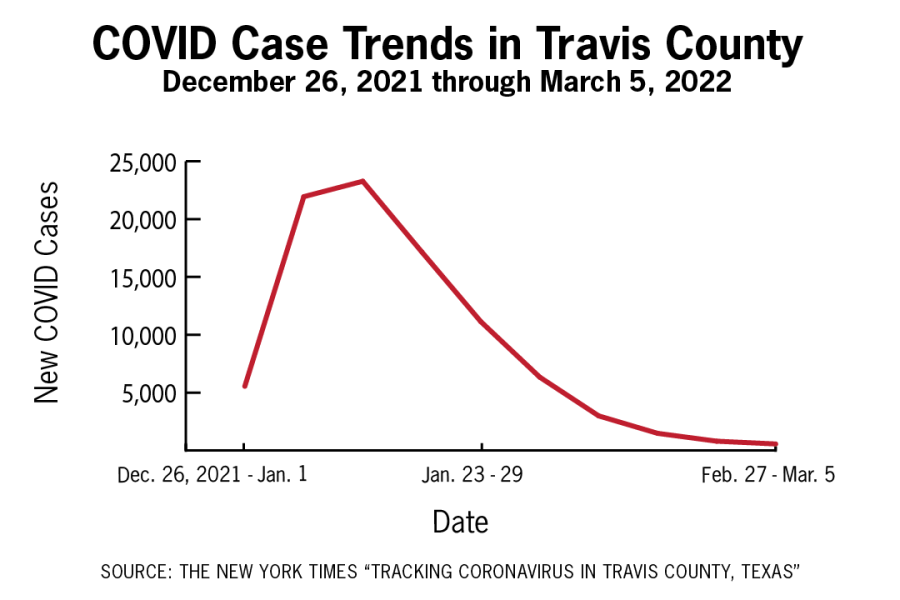UT continues to recommend masks indoors as CDC classifies Travis County low risk
March 10, 2022
UT still recommends students, faculty and staff wear masks indoors after Austin moved into Stage 2 COVID-19 guidelines March 4, according to a University spokesperson.
Austin Public Health officials issued the new guidelines after moving into Stage 3 March 1. In Stage 3, vaccinated individuals are free to shop, dine and gather without precautions, while those who are unvaccinated are still encouraged to wear masks at indoor and outdoor gatherings. UT did not change its guidelines and still recommends masks be worn indoors, said Susan Hochman, associate director for assessment, communication and data informatics for University Health Services and the Counseling and Mental Health Center.
Hochman said in an email that the University continues to recommend that masks be worn indoors, regardless of vaccination status. The University does not have a mask or vaccination mandate.
“The university continues to monitor conditions in light of the Centers for Disease Control and Prevention update to masking guidance,” Hochman said in the email. “As conditions improve in the surrounding region, we are closely monitoring data from the campus community to determine when conditions will warrant a change.”
According to the press release, APH officials are asking that people continue to mask until the end of spring break and South by Southwest, since many people will be traveling to Austin.
Remy Pasco, a graduate research assistant at UT’s COVID-19 Modeling Consortium, said the falling COVID-19 case numbers in Austin justify the move to Stage 2.
“It makes sense to be loosening restrictions in the context of what we’ve seen so far, and what’s happening right now,” Pasco said.
Pasco said evidence suggests that many people in Austin have some level of immunity that could last for months, but it is still important to exercise caution when traveling and for those who are unvaccinated or immunocompromised.
“It’s personal responsibility and respect for others,” Pasco said. “I understand that people don’t want to wear masks, and it comes probably more down to the fact that some people might be compromised, and if you know someone who is vulnerable in the environment, then you probably should wear masks.”



